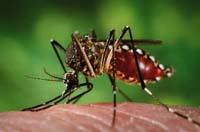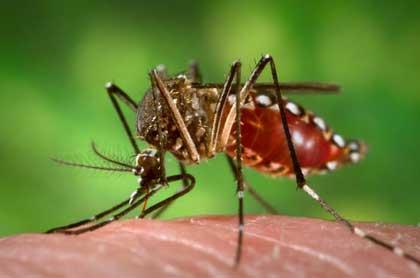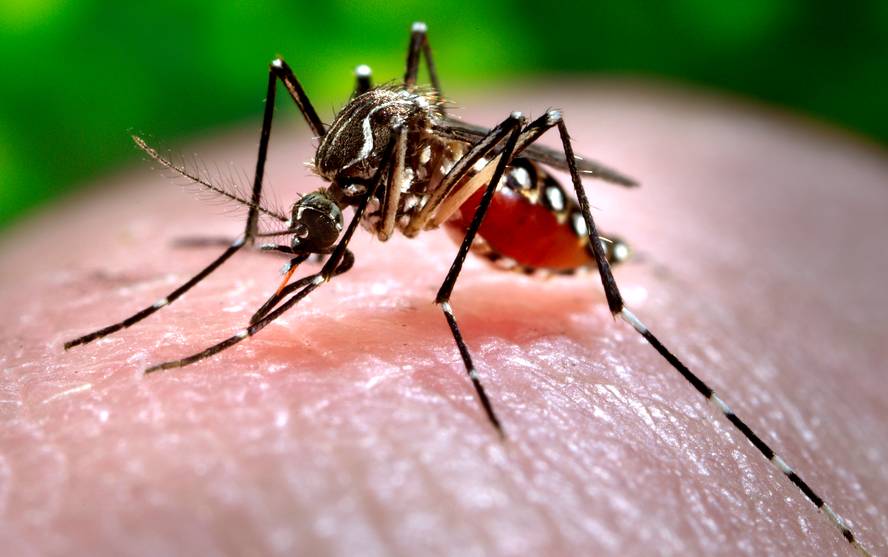Insecticide paint to combat dengue and dirt
2024/03/20 Etxebeste Aduriz, Egoitz - Elhuyar Zientzia Iturria: Elhuyar aldizkaria

A study conducted in Cape Verde shows that the use of insecticide paint in households is effective in combating mosquito-borne diseases. It has been proven that painting has a minimum effectiveness of one year, so they propose that it can be used as a new strategy of disease vector control. The results have been published in the journal Frontiers in Tropical Diseases.
Vector-borne diseases account for more than 17 per cent of all infectious diseases, according to the World Health Organization, affecting more impoverished populations in tropical and subtropical areas. Malaria is the most severe and dengue the most abundant. Both are transmitted by mosquitoes, as well as by pica, chikungunya, yellow fever and West Nile fever, among others. In addition, because of climate change, these vectors are expanding more and more around the world.
In Cape Verde, in order to strengthen the current national programme to combat these diseases, they have tested the effectiveness of three insecticide paints. 228 houses were painted in two neighborhoods particularly vulnerable to mosquito-borne diseases (frequent flooding due to poor drainage and poor sewage management). The first month three paintings killed all the Aedes aegypti mosquitoes. The threshold of effectiveness established by the WHO is death at more than 80% at three months. At six months, the efficacy of two paints fell below this threshold, but the third remained this effectiveness even at 12 months. This painting releases very small amounts of insecticide for a long time a month that saw the insecticide, making it more sustainable and environmentally friendly, researchers said.
Thus, they conclude that this painting is effective in killing the A. aegypti mosquito for at least one year. In addition, researchers have emphasized that the experiment has been well received by the population and that it has not found any significant impact on the health of residents. Few residents reported mild side effects such as mild eye or nasal irritation (10%) and headache (4%).

Gai honi buruzko eduki gehiago
Elhuyarrek garatutako teknologia






